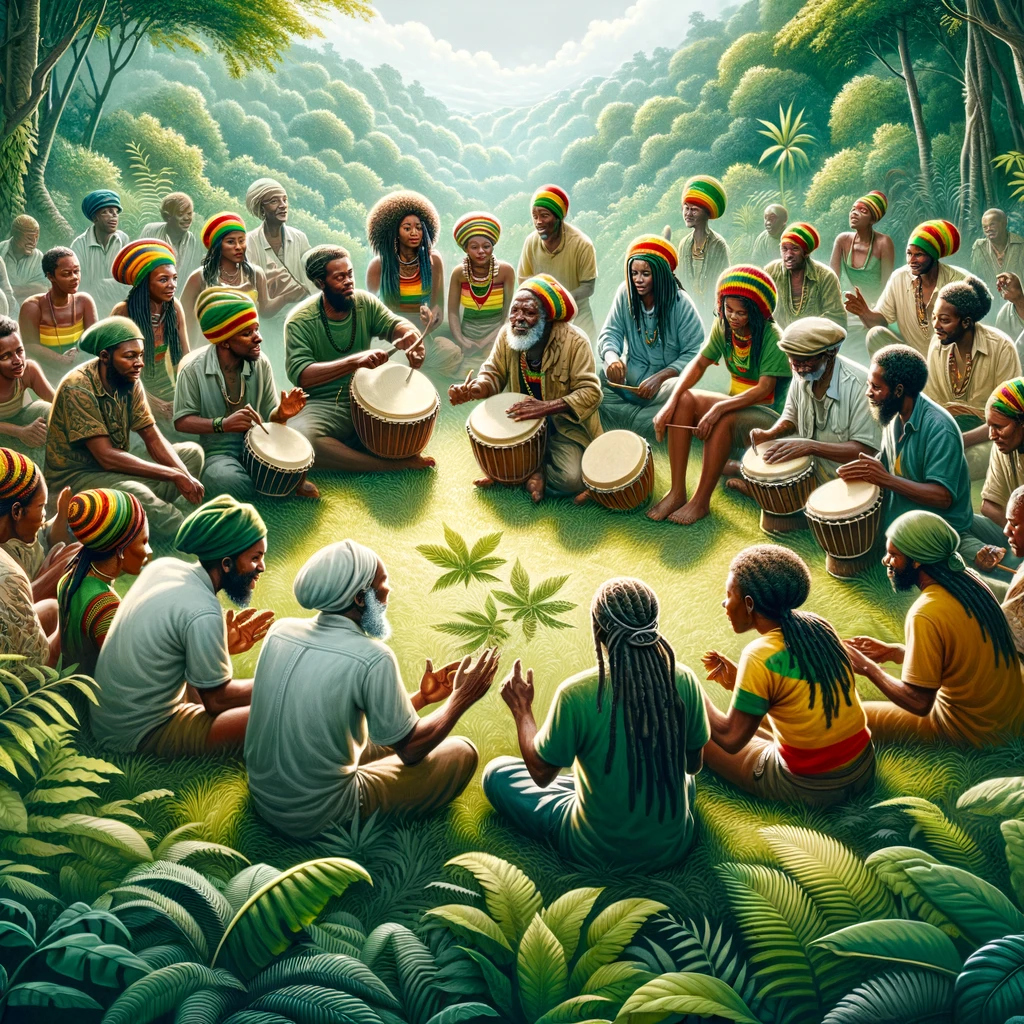In Rastafari culture, community and unity are not just ideals; they are essential ways of life that empower and sustain its members. This blog post explores how these principles are woven into the daily life and spiritual practices of the Rastafari.
1. The Foundation of Rasta Communities
Rastafari communities, often referred to as “Mansions,” are based on a foundation of shared beliefs and practices. These communities are places where members support each other not just spiritually but also practically, from sharing meals to communal farming. The concept of “I and I,” which emphasizes the connection between the individual and the collective, reinforces the idea that personal health and spiritual well-being are deeply connected to the community’s vitality.
2. Nyabinghi Gatherings: Celebrating Unity and Spirituality
Nyabinghi gatherings are among the most important communal activities in Rastafari culture, serving as a space for spiritual rejuvenation and collective decision-making. These meetings involve music, chanting, drumming, and dancing, which are seen as ways to communicate with the divine and affirm communal bonds. They also serve as a forum for discussing community issues, reflecting the democratic and inclusive nature of Rasta governance.
3. Education and Empowerment
Education plays a crucial role in Rastafari communities, focusing not just on traditional academics but also on teaching the principles of Rastafari, African history, and self-reliance. Many communities run informal schools and workshops to ensure that both children and adults have access to knowledge that reinforces their cultural identity and practical skills.
4. Global Connections and Activism
Rastafari is not confined to local communities; it is a global movement connected through a shared ideology of resistance against oppression and inequality. This global network supports various forms of activism, from advocating for civil rights to environmental causes, showing how community and unity extend beyond geographical boundaries.
Closing Thoughts
Community and unity are more than just aspects of Rastafari culture; they are the pillars that support and enrich its members’ lives. By fostering a sense of belonging and purpose, Rastafari communities not only survive but thrive, spreading their message of love and unity worldwide.

